Shibuya, a world heritage music coffee shop, is famous for eating tea.
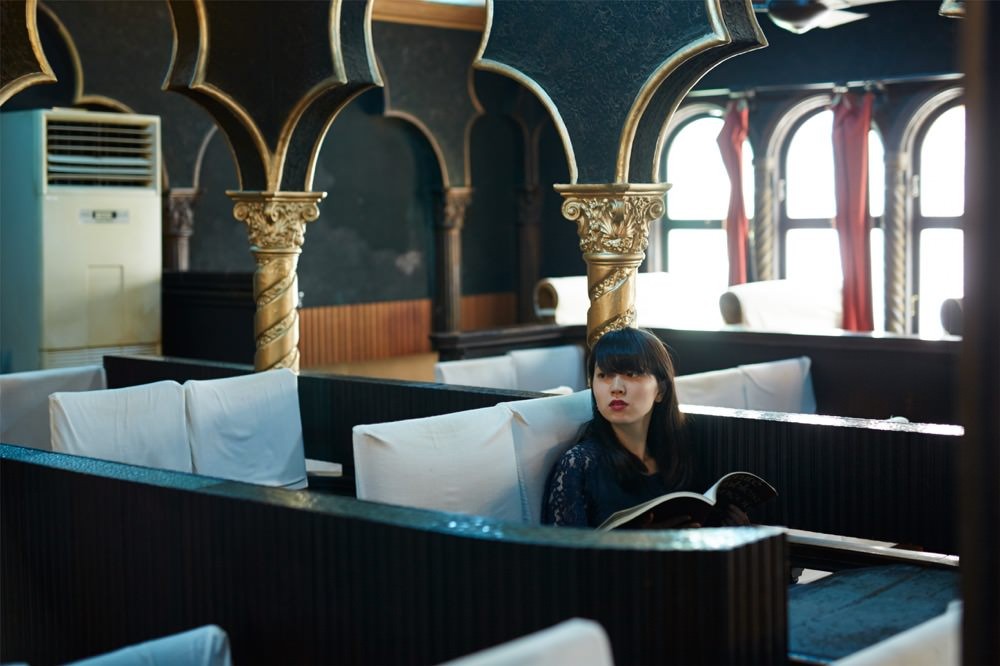
For professional baristas, please follow the coffee workshop (Wechat official account cafe_style)
In the 1950s and 1960s, there was a coffee shop called "Mingqu eating Tea", which was very popular in Tokyo. In addition to the coffee itself, the focus of this kind of cafe is mainly on classical music. The high-priced speakers and vinyl records are unmatched by ordinary families. People are willing to go out and sit in the cafe and enjoy the rare high-fidelity sound quality.
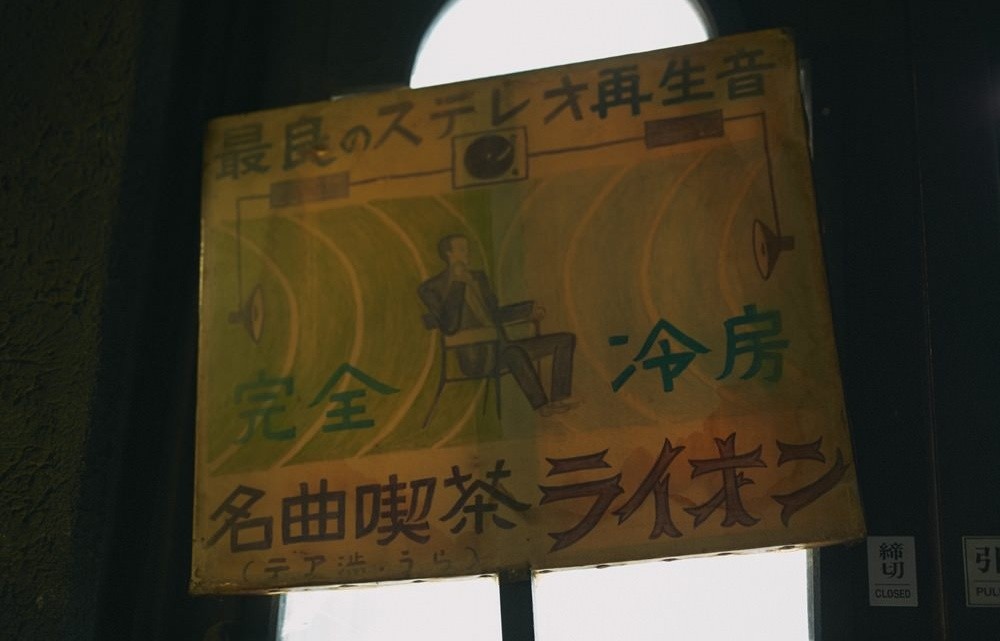
Nowadays, music in the digital age is getting cheaper and cheaper, people can listen to the Walkman at any time, and the pursuit of music quality seems to be less intense. As a legacy of the times, music cafes have gradually become a rare species like the western lynx. How many old-fashioned music coffee shops have survived today that cannot go against the trend?
Enthusiastic travelers can naturally solve this riddle. But before you go, let me tell you the story of this lion.
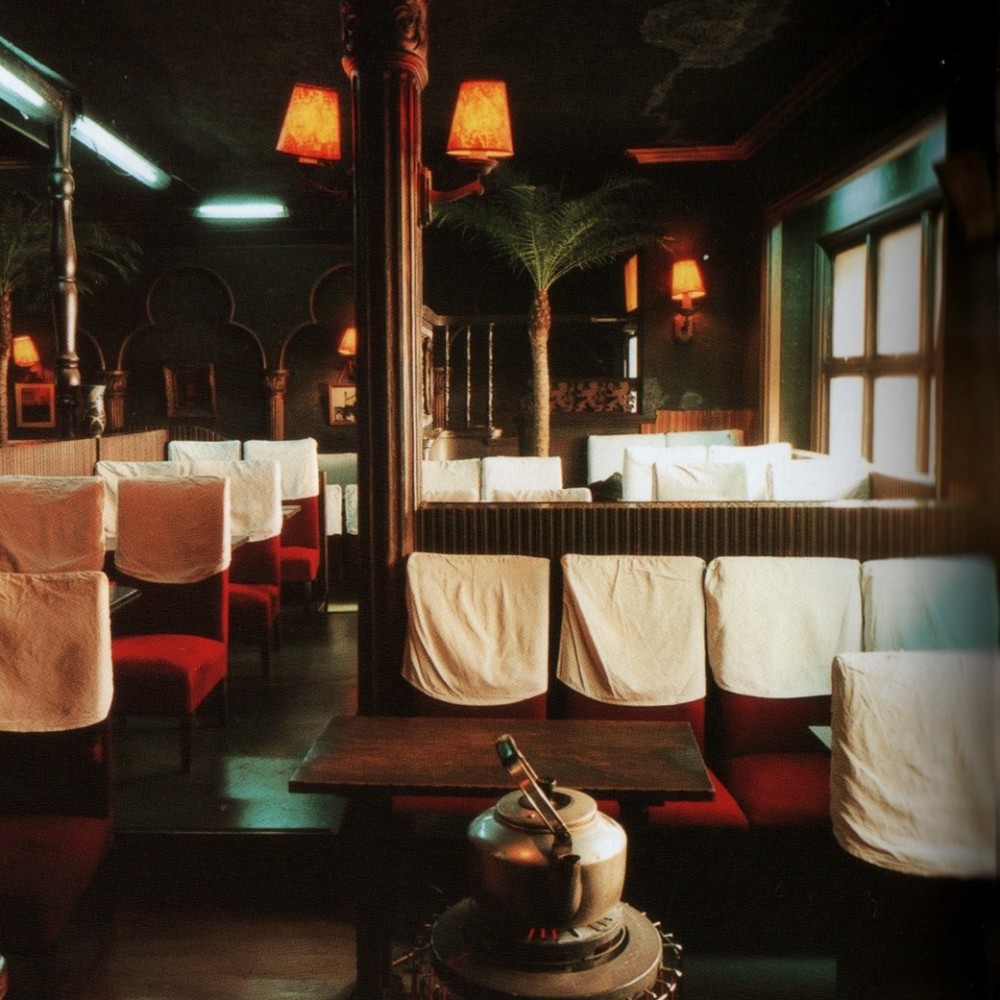
Come out from Shibuya Station, cross the famous sidewalk, turn left at Shibuya 109 Department Store, and you will find Daoguanzaka. Shibuya is a valley, so the road is undulating. Turn right from the Baixuan store, and soon you will see the green sign.
After World War II, the famous shops of Asakusa and Ginza moved to Shibuya one after another. There were a hundred stores, and they were called Baixuan shop for a moment of prosperity. This is the center of Shibuya in the past. Today's Baixuan shop has become a strip club and Lovers Point Inn. Only the restaurant has not changed. From 1926 to 2016, it is 90 years old.
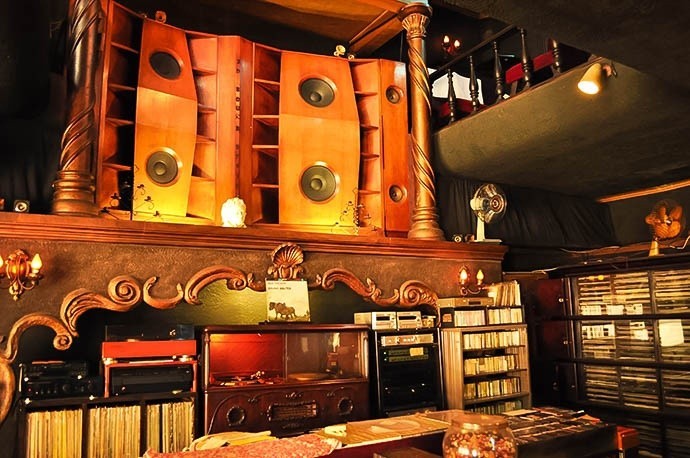
The name "Lion" is taken from Lion Bakery, a famous shop in London. In the filtering method of coffee, it comes down in a continuous line, using flannel instead of paper, the taste of coffee is better and smoother and mellow. The store is in rococo style. The front is a three-meter-high compound stereo, strangely shaped like a multi-eyed troll. Under the stereo, there are more than 5000 classical records collected in the store. In the middle of drinking coffee, it is also fun to come here to find your favorite music.
The crystal chandelier hung from the height. All seats on the first and second floors are facing the sound (seats on the third floor and the first floor on the ground floor are now suspended during the peak period). The seats are covered with freshly washed white seat covers, like a train carriage or a classroom.
French coffee shops have a habit of placing seats in the same direction, and Lion chose this design in order to better integrate customers into Alice Wonderland.
Sitting here is like getting on a train carrying countless notes. It is a classroom of the soul. Every day at three o'clock in the afternoon and seven in the evening, the designated playlist will be played in the store. At other times, it will be played by the customer (each person is limited to one song, customer music source can be used, but pop music is prohibited).
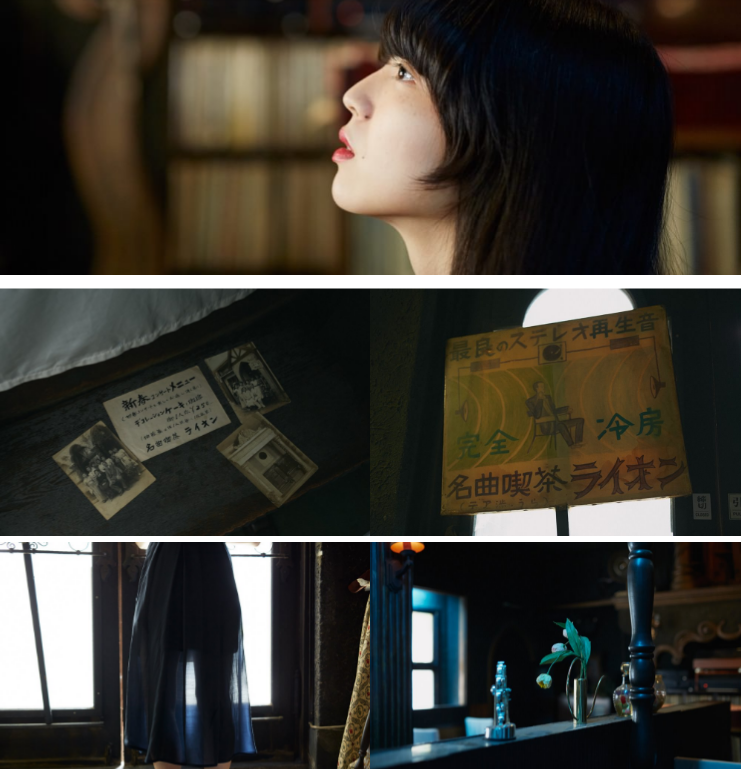
The founder of the store, Miyosuke Yamashi, was born in Huizu (now Fukushima Prefecture) and is the child of the winemaker. He and his mother went to Hokkaido to work, earned a lot of hard money, came to Tokyo and opened the shop in 1926. The design in the store is all completed by the dexterous mountain temple himself. The younger brother of the wife of the mountain temple, Zongfu Ishihara, brought back the flannel coffee filter from London, which has been used ever since.
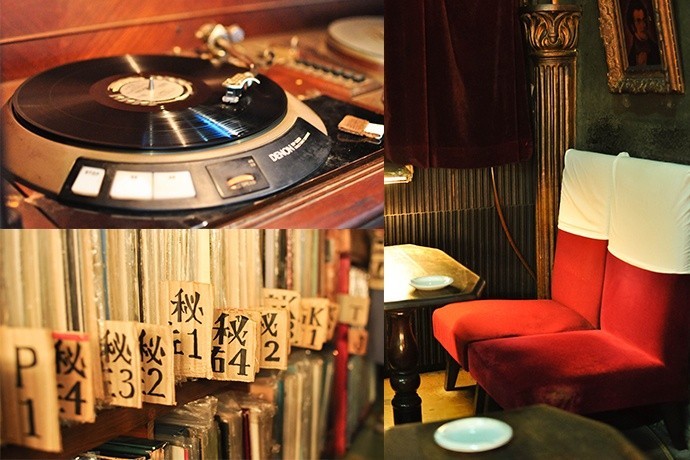
In 1945, the site of the store was in ruins after a major air raid in Tokyo. After the war, it was rebuilt according to the original format, and Zongfu Ishihara became the second-generation shopkeeper. In 1990, 91-year-old Miyosuke Yamashi slept forever. In 2007, 77-year-old Zongfu Ishihara slept forever. Now there is a wooden hollowed-out tiger on the second floor of the store, which is said to have been picked up from the ruins of the war, the craftsmanship of the mountain temple.
The third-generation shopkeeper is Keiko Ishihara, the wife of Zongfu Ishihara, who is 83 years old. Her second son is responsible for the maintenance of the giant sound system in the store. Keiko's dream is to pass on this world of classical music. Let busy lost Shibuya, can often calm down, listen to Liszt, Simanovsky, even if it is a loud, high-spirited Wagner.
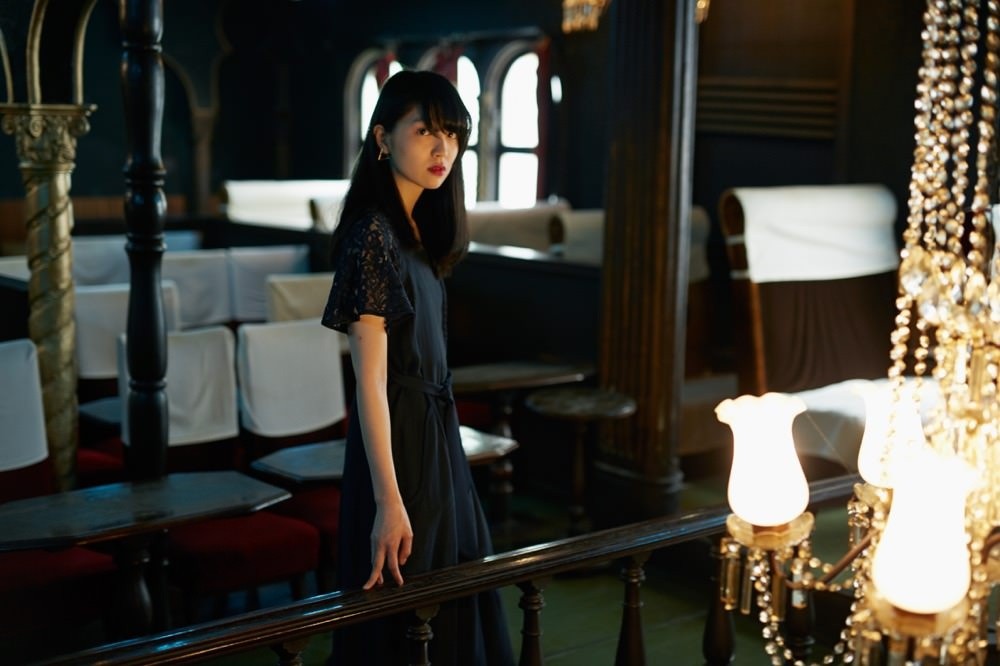
Shop information
Famous melodies are served with tea.
Daoguansaka 2-19-12, Shibuya District, Tokyo
OPEN 11 000022 30 (LO 22:20)
TEL 03-3461-6858
Important Notice :
前街咖啡 FrontStreet Coffee has moved to new addredd:
FrontStreet Coffee Address: 315,Donghua East Road,GuangZhou
Tel:020 38364473
- Prev
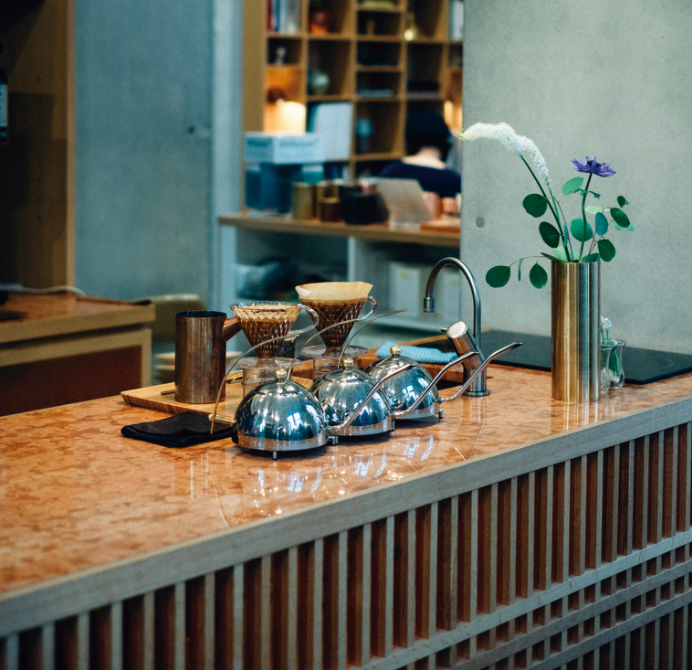
The evolution of "Kaikado Caf é" craft and aesthetic feeling, the combination of tradition and innovation
1 Exchange of professional baristas Please follow the Coffee Workshop (official Wechat account cafe_style) the latest trip to Kyoto was an unplanned trip to get to know this wonderful ancient capital again from the moment the night bus got off, but there was a place to pay a visit anyway. A long time before departure, in the magazine introducing Kyoto, Kaihua Hall
- Next

The type of cafe: if you want to open a restaurant, let's first learn about the classification of cafes.
Professional baristas Please follow the Coffee Workshop (official Wechat account cafe_style) whenever you walk past a coffee shop, the aroma and idleness of the coffee shop always make you want to come in and have a rest. Opening a cafe is a dream that many people have had since childhood. As they get older, some people give up this dream, but others stick to it. The cafe has a good way of operating.
Related
- What documents do you need to go through to open a coffee shop? coffee shop coffee shop certificate processing process
- How to purchase Coffee beans in small Cafe how to choose a suitable supplier for domestic Coffee supply Company
- How to drink Starbucks Fragrance White Coffee? how to make Australian White Coffee? what Italian coffee beans are recommended?
- The Story of Flora Coffee: the name of Flora Coffee Bean and the implication of the Flowers on Florna Coffee
- How much does a cup of coffee cost? How much is the profit of a cup of coffee? What is the profit of the coffee shop in a year?
- Yunnan small Coffee, known as "fragrant Coffee", introduces the characteristics of Alpine Arabica Coffee producing areas in Yunnan, China
- 2023 latest Starbucks full menu price list how much is a cup of Starbucks coffee what is better to drink the most popular hot and cold drinks recommended
- Starbucks different kinds of Coffee Price list Starbucks menu 2023 Top Ten Best drinks in Starbucks
- Starbucks Spring praise Comprehensive matching Coffee Bean theme Story Packaging implication and taste description
- The cost of a cup of coffee latte American coffee cost price and selling price

